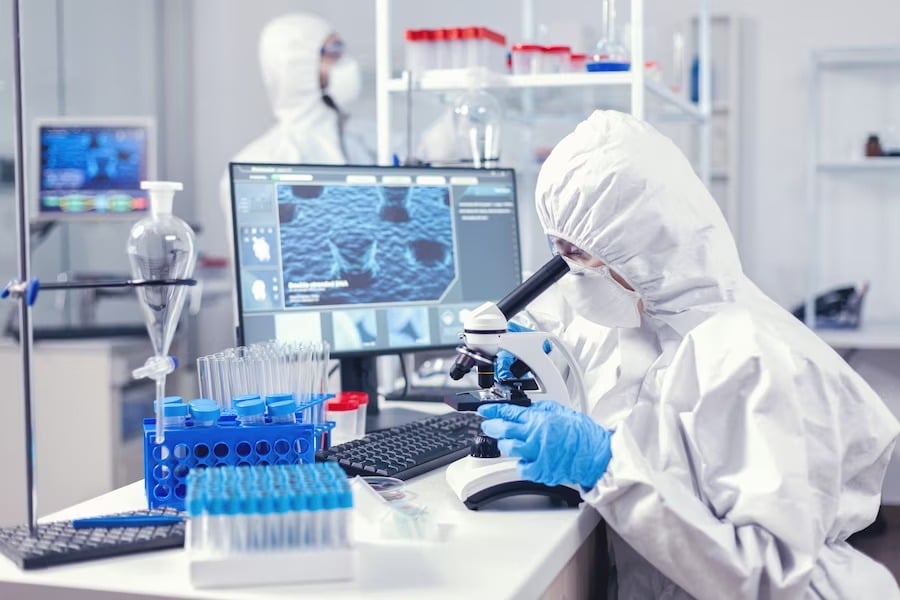
India is a country that has long been known for its medical innovation and advancements in healthcare. The recent emergence of medical laboratory technology as an important field of study has also added to this recognition. This means that India now has access to some of the best healthcare technology available in the world. Medical laboratory technology is a rapidly growing field in India, with more students taking up courses and becoming certified professionals each year. In this blog post, we will explore the current state of medical laboratory technology in India, what it offers, and how it can benefit patients and practitioners alike.
What is Medical Laboratory Technology?
Medical laboratory technology is a branch of medical science that deals with the diagnosis, treatment, and prevention of disease using clinical laboratory tests. It covers a wide range of tests from routine blood and urine tests to more complex tests such as DNA sequencing.
Medical laboratory technologists are trained to perform these tests and interpret the results. They work in hospitals, clinics, and laboratories, and may also be involved in research. Here you can visit the best medical testing laboratory in Punjab.
In India, medical laboratory technology is a growing field with many opportunities for career growth. There are many institutes offering degree and diploma programs in this field.
History of Medical Laboratory Technology in India
Medical Laboratory Technology in India has a long and rich history. It is thought that the first medical laboratory was established in Calcutta by Dr. John Woodall in 1628. This laboratory was used to test the blood of European soldiers who were fighting in India. In 1845, another laboratory was established in Bombay by Dr. Alexander Murray. This laboratory was used to study cholera and other diseases.
In 1847, the first Indian medical school was established in Calcutta. This school taught Western medicine and had a laboratory attached to it. In 1854, the Government Medical College in Bombay also began teaching Western medicine and had a laboratory attached to it. However, these two institutions were not solely responsible for the development of medical laboratories in India. Private individuals also played a role in the establishment of laboratories throughout the country.
One such individual was Dr. Dharmendrasinhji Lakhdhiraji Wadia, who established a private medical laboratory in Ahmedabad in 1889. This laboratory was used to study various diseases including plague and malaria. Another important individual was Dr. Prafulla Chandra Roy, who established a private medical laboratory in Calcutta in 1896. This laboratory was used to study cholera, plague, and other diseases.
The establishment of these private laboratories led to the development of public health laboratories throughout India. The first public health laboratory was established in Madras in 1899 by the Government of Madras.
The Different types of Laboratories in India
There are many different types of laboratories in India that cater to different needs. Here are a few of the most common:
- Pathology Laboratories: These laboratories are responsible for diagnosing and treating diseases. They use a variety of techniques, including microscopy, biochemistry, and histology.
- Microbiology Laboratories: These laboratories study microorganisms such as bacteria, viruses, and fungi. They are important in the diagnosis and treatment of infections.
- Biochemistry Laboratories: These laboratories analyze chemical reactions in the body. They are important in the diagnosis and treatment of conditions such as diabetes and cancer.
- Immunology Laboratories: These laboratories study the immune system. They are important in the diagnosis and treatment of autoimmune diseases and allergies.
- Molecular Biology Laboratories: These laboratories study the structure and function of genes and their products. They are important in the diagnosis and treatment of genetic disorders.
- Nuclear Medicine Laboratories: These laboratories use radioactive materials to diagnose and treat diseases. Cancer diagnosis and treatment depend on them.
- Industrial Chemistry Laboratories: These laboratories analyze the composition of materials for various industries, such as food processing, pharmaceuticals, petrochemicals, etc.
- Environmental Laboratories: These laboratories analyze samples from the environment to determine pollution levels or possible contamination from hazardous materials.
The Future of Medical Laboratory Technology in India
Medical laboratory technology is a vital part of the healthcare system in India. It plays a crucial role in the diagnosis and treatment of diseases.
The future of medical laboratory technology in India is very promising. With the rapid growth of the healthcare sector in India, there is a great demand for trained medical laboratory technicians.
There are many job opportunities available for qualified medical laboratory technicians in India. The government is also investing heavily in the healthcare sector, which will create even more jobs in this field.
With the right training and qualifications, you can have a very successful career as a medical laboratory technician in India.
Conclusion
Medical laboratory technology is an incredibly important profession in India, as it plays a major role in providing accurate and timely results for diagnosis and treatment at the best medical testing laboratory in Punjab for diseases. The increasing demand for qualified professionals has led to increased opportunities across the country, with many institutions offering specialized training programs. Aspiring professionals can take advantage of these programs to learn the necessary skills and knowledge that will enable them to become successful medical laboratory technicians. With proper guidance and dedication, students can become essential members of the healthcare industry, helping provide better care and health outcomes for patients throughout India.

